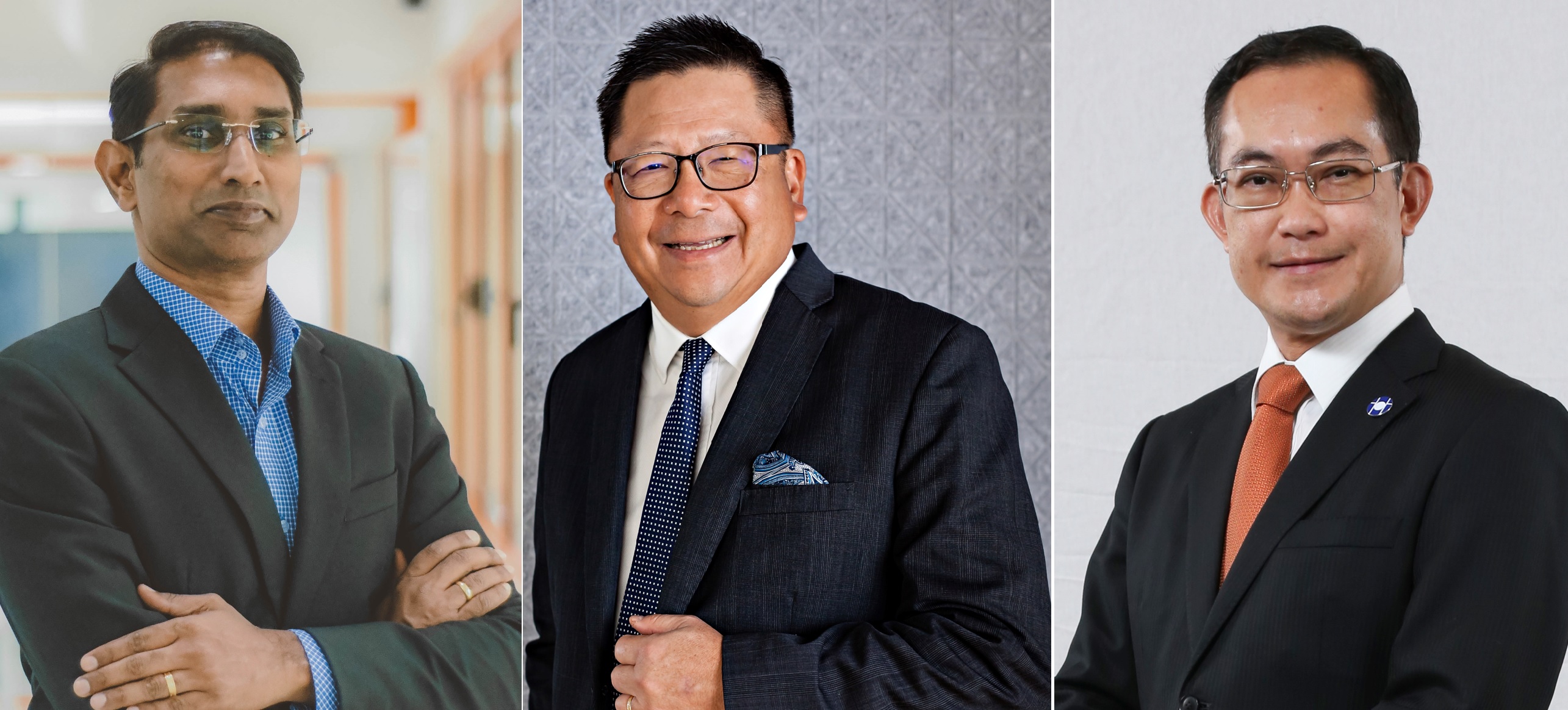KUALA LUMPUR: Marketing Magazine Asia had previously reported about how world renowned spice manufacturer Baba Products (M) Sdn. Bhd. (BABA’S) has successfully transformed its operations with SAP technologies to realise greater efficiencies and optimal outcomes for partners and stakeholders.
Its finance head Ilaventhan Vijaya (left in pic) had said that BABA’S maintains highest standards with ‘freshest on the shelf’ policy, with only the finest ingredients to ensure purity and quality, and the employment of innovative state-of-the-art production and hygienic packaging techniques.

Thanks to its collaboration with SAP Malaysia spearheaded by managing director Hong Kok Cheong (centre in pic), BABA’S has now moved its operations and business development to the next level. The company had chosen SAP for its digital transformation initiative as it transitioned from its previous all-manual, paper-based processes to a digital business platform. The SAP solution suite included SAP S/4 HANA, Direct Store Delivery with CRM (customer relationship management), SAP SuccessFactors and SAP Payroll.
BABA’S is a good example of numerous Malaysian businesses that have benefited from leveraging on SAP’s innovation.
This year marks the 30th anniversary of SAP in Malaysia – and the world’s largest provider of enterprise application software has certainly empowered various local organisations and businesses to embrace the future with confidence.
Take also the case of IOI Corporation Berhad.
In late-2020, group managing director and chief executive Datuk Lee Yeow Chor (right in pic) was recognised by international research firm International Data Corporation (IDC) as Malaysia’s Digital Transformation (DX) CEO of the year.
IDC had stated that “through the leadership of Datuk Lee Yeow Chor, IOI had successfully undertaken its business digitalisation and transformation journey to become an intelligent enterprise.”
Again, it was due to SAP as IOI successfully implemented the SAP ERP System together with the Electronic Plantation Monitoring System (ePMS) which employs handheld devices,
The digital transformation programme was initiated with the vision of optimising activities across the entire value chain to maximise productivity, minimise cost and to cope with the fluidness of market conditions.
“This was a most ambitious project, involving 107 business units across 170,000 hectares of land, and involving more than 1200 users – many of whom are based at remote areas with unstable internet connectivity,” Datuk Lee reportedly said. The group-wide SAP system was implemented in several roll-out stages to streamline IOI’s diverse and stand-alone systems into a single unified platform environment called the ONE IOI Integrated Platform.
Once completed, IOI had fully integrated corporate information for real-time decision-making and analytics – making its operations more streamlined, and processes further optimised.
“At IOI, having completed this programme, we have become more resilient and ready to transform to the next stage of efficiency and innovativeness,” said Datuk Lee. In other words, IOI’s integrated digital transformation approach has strengthened IOI’s business fundamentals and the ability to create long-term value for all its stakeholders, including shareholders, employees and the communities in which it operates.
SAP’s nation-building commitment
Based out of Mid Valley in Kuala Lumpur, SAP Malaysia continues to play an active role in nation-building. In his Hari Merdeka message last year, Hong said that SAP constantly strives to elevate Malaysia’s competitiveness, while also being actively involved in various aspects of nation-building. For example, when the Covid-19 pandemic hit in 2020, SAP opened free access to various technology solutions that differentiated and supported businesses and individuals who were navigating disrupted supply chains while exploring new ways of working.
Hong also said that SAP would continue to be supportive of technology’s role for Malaysia to realise sustainable growth in the years ahead.
“Our focus predominantly centres around upskilling and youth employment, together with small-medium enterprises’ (SMEs) readiness for Industrial Revolution 4.0 (4IR) along with the transition to intelligent technologies on the cloud,” said Hong. “It’s all about sustainability.”
On upskilling and employment, SAP continues to collaborate with Digital Economy Corporation (MDEC) on the MyUniAlliance programme which provides training for some three thousand students per year. Eighteen higher learning institutes, including two foreign universities, have thus far participated in the programme.
And in collaboration with the ASEAN Foundation, SAP hosts the ASEAN Data Science Explorers (ASEAN DSE) initiative at both national and regional levels. The objective, here, is to encourage youths to embrace analytics skills to see through various projects to benefit communities and countries.
Encouragement for SME readiness for 4IR is also an important SAP priority for businesses to embrace cutting-edge digital technologies to realise productivity and efficiency gains.
“The SME landscape is especially crucial as many still lag in technology adoption within their business operations,” said Hong. “Hence, the growing importance of SMEs to utilise technology directly into key business processes if they are to survive and thrive against global competitors.”
“Local businesses need to make the transition to becoming ‘intelligent enterprises’. By doing so, businesses can do more with less, deliver best-in-class customer experience, build resilient supply chains, while inventing new business models and revenue streams.”
With 2022 being its 30th year in Malaysia, long may SAP continue with its mission of helping Malaysia organisations run better while improving lives throughout the country.
Certainly, SAP’s extensive resources are set to make a truly positive global impact for Malaysia, and the generations to come.
This commentary was originally published in Marketing Magazine Asia.



